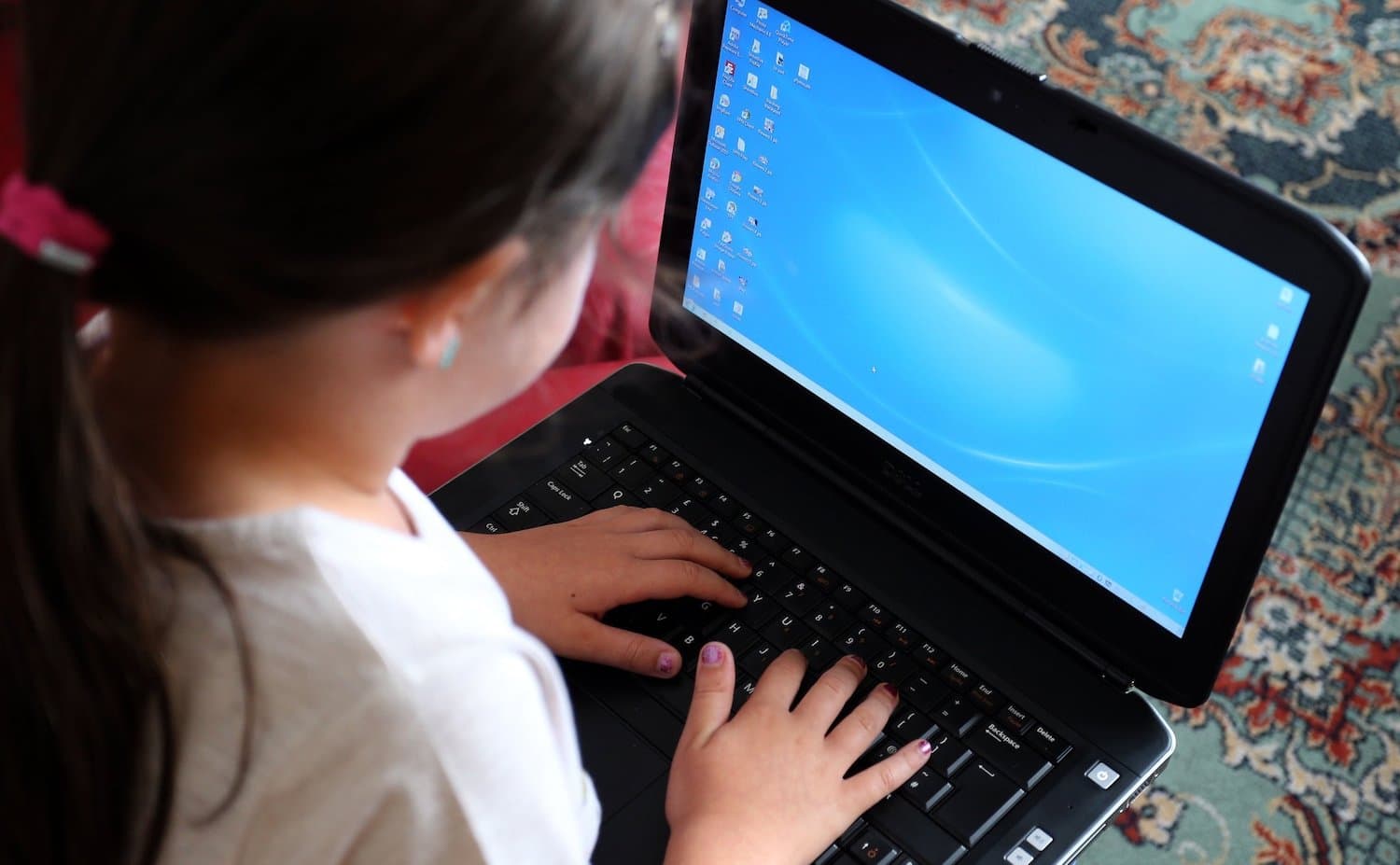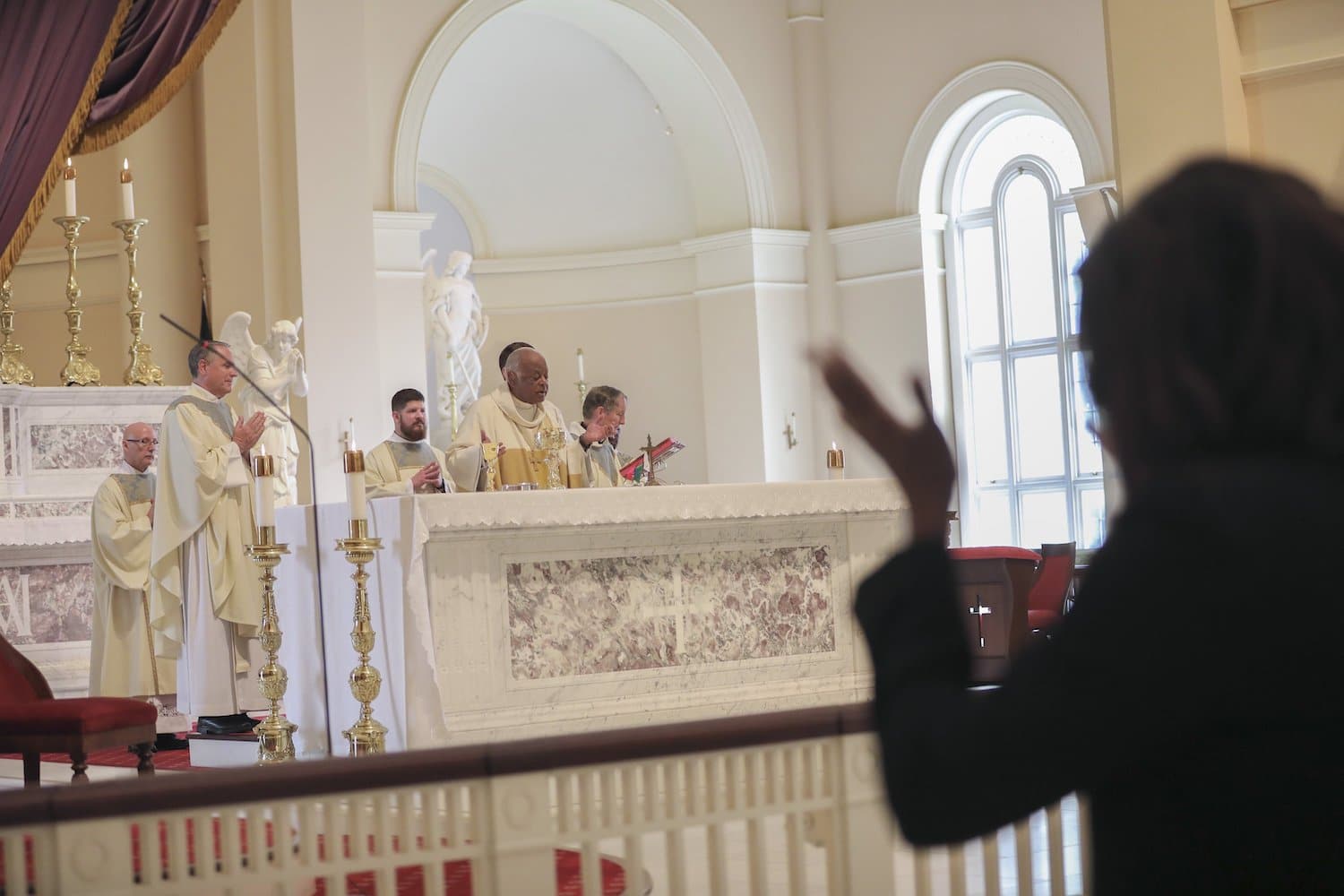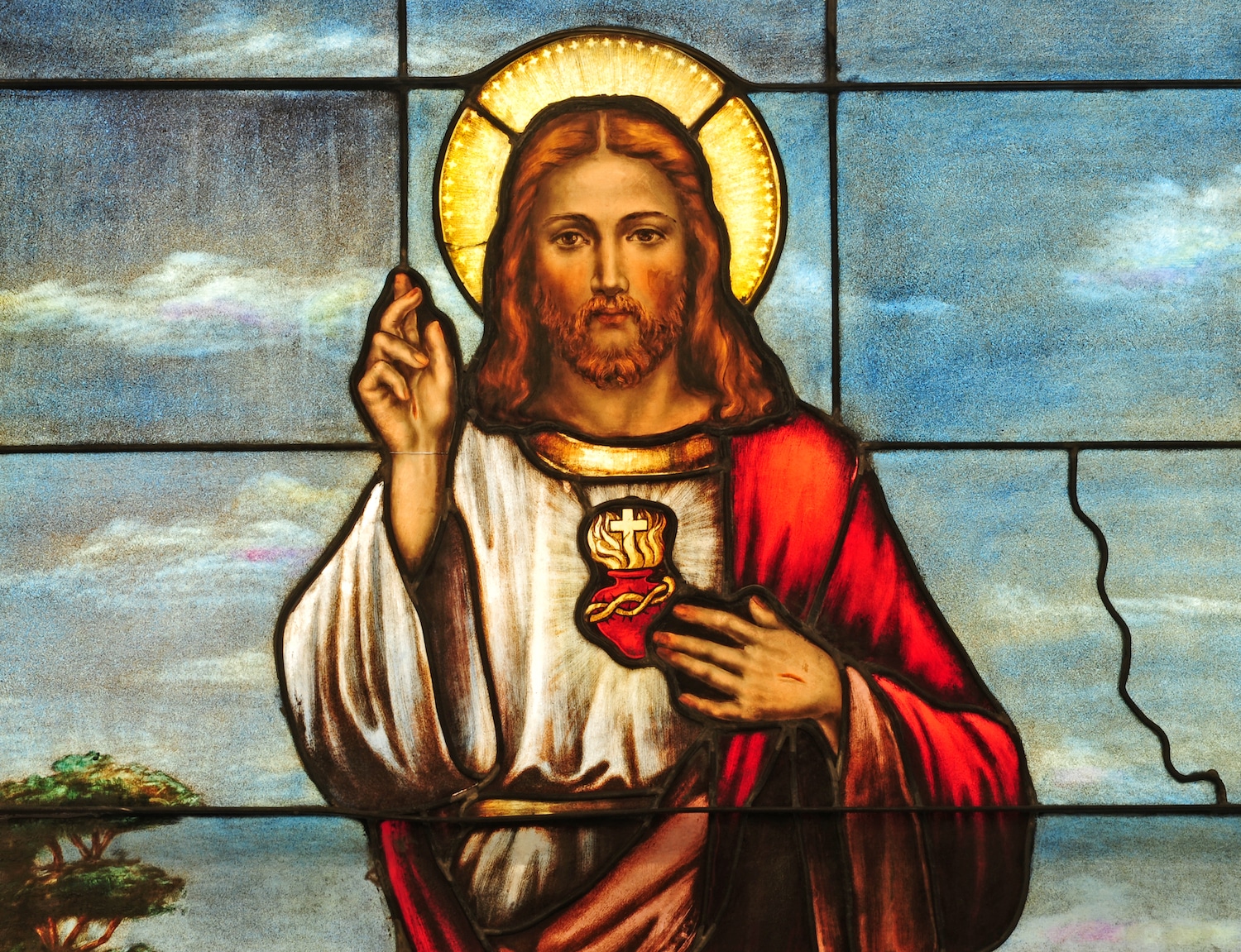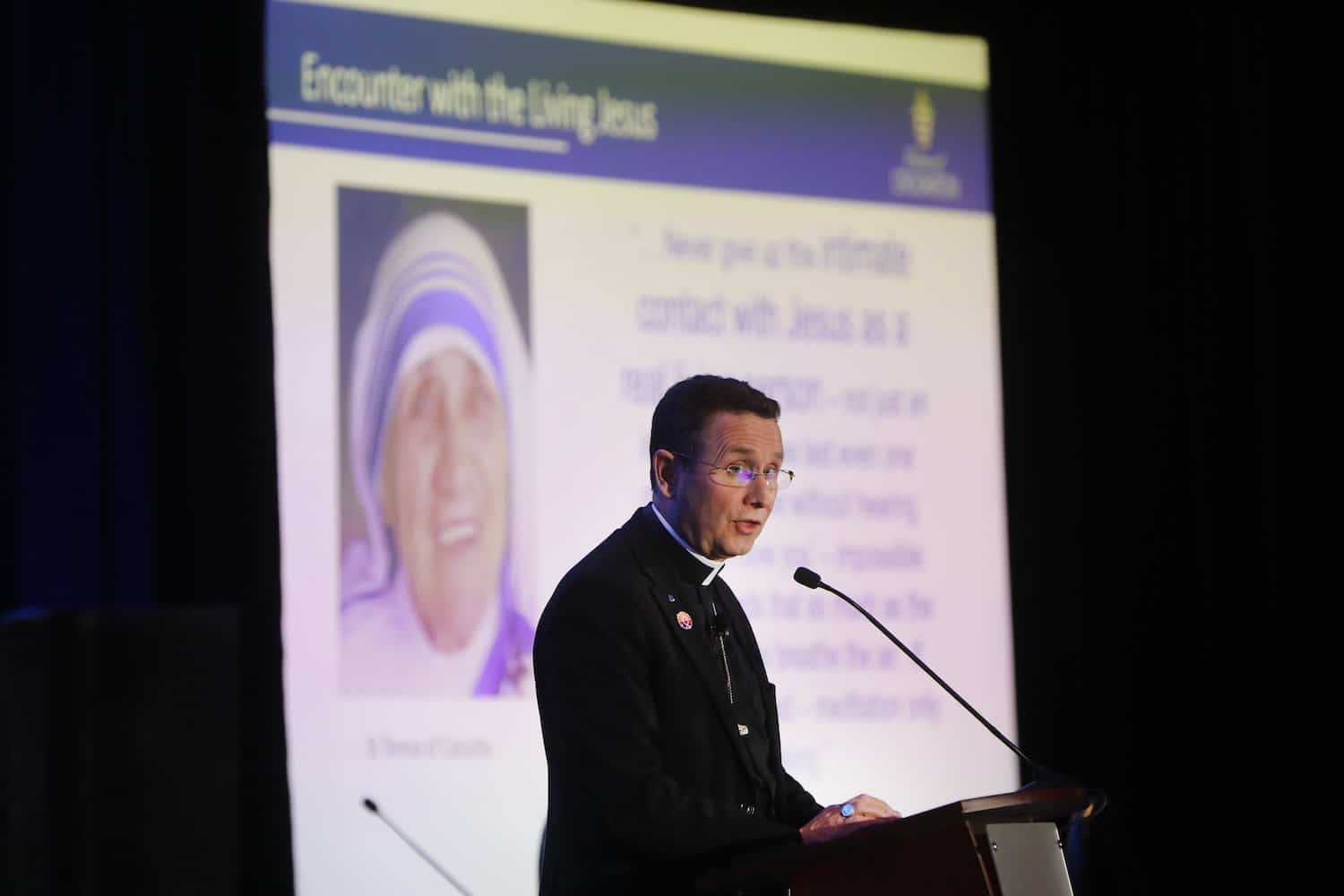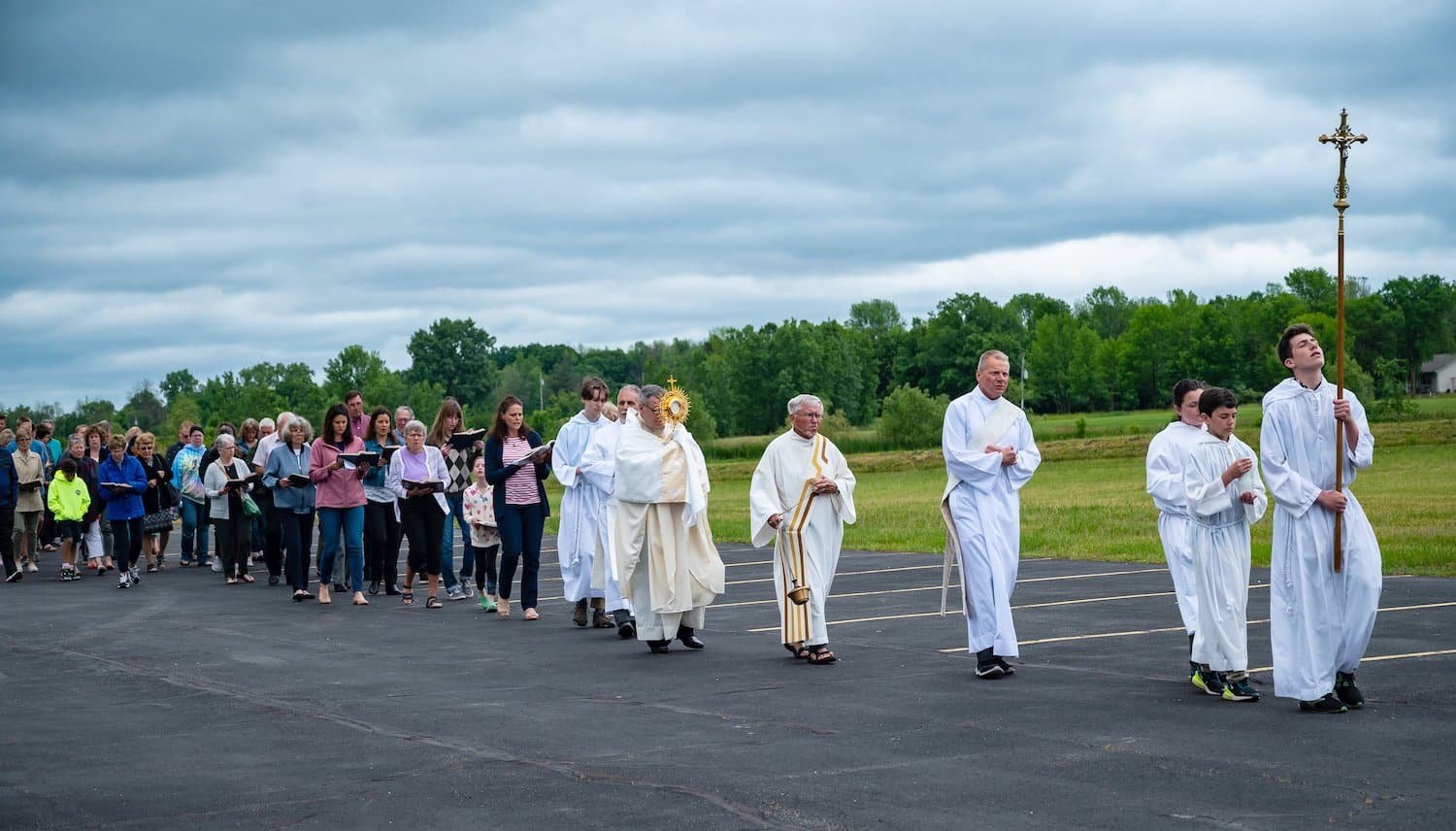(OSV News) — The U.S. bishops are encouraging Catholics to join them in asking Congress to protect children online, both from viewing pornography and from becoming victims of child pornography and exploitation.
In a June 9 action alert, the U.S. Conference of Catholic Bishops’ Department of Justice, Peace and Human Development said that “members of both parties in Congress are putting forward various pieces of legislation that would address and help prevent the destructive effects of online child exploitation,” and the voice of Catholics “is needed to urge Congress to use their authority to protect children and vulnerable people online.”
The appeal follows a June 6 letter to Congress from chairmen of four USCCB committees urging the lawmakers to enact safeguards to protect children from exposure to internet pornography and provide resources for law enforcement fighting online pornography. They did not refer to specific bills.
“As pastors, we have seen the destructive effects of the reprehensible offenses of child exploitation firsthand,” the bishops wrote in the letter. “And as leaders of an institution that, for many years, failed to meet its responsibility to protect all children, we know all too well the consequences of a culture that fails to give adequate attention to the problem of child sexual exploitation.”
While child exploitation has always been a problem, the internet and mobile technology have caused it to increase, they said.
“Online child exploitation threatens the safety and well-being of our young people and destroys families and communities,” the bishops said. “The ability of a child to grow into adulthood in peace and security is both a human right and a demand of the common good: the dignity of the human person requires protections for our young people so that they may flourish as they mature.”
The bishops asked the members of Congress to keep in mind three moral principles: respect for life and dignity, the call to family, and the call to community and participation, tenets of Catholic social teaching.
They drew attention to Pope Francis’ condemnation of pornography, which he called “an attack on the dignity of men and women” in a June 2022 address to Directors of the Federation of Catholic Family Associations in Europe, and his 2014 Lenten message, in which he stated, “How much pain is caused in families because one of their members — often a young person — is in thrall to alcohol, drugs, gambling or pornography!”
“Child pornography is illegal, abusive, and a form of human trafficking because of a child’s inability to consent,” the bishops wrote to Congress. “Despite the efforts of caring parents, modern technology has created an open Internet landscape fraught with peril for children. There is an immediate need for effective safeguards to ensure children cannot access inappropriate online media. Likewise, law enforcement agencies and child-serving professionals with the ability to identify and remove child pornography from the Internet must be provided the necessary resources to ensure the safety and well-being of children.”
They also called for legislation to “respect the family as the central social institution of society and buttress the authority and ability of parents to protect their children online, by ensuring that they have the tools necessary to monitor their children’s online activity” and to “ensure that social media platforms do not permit abuse by predators or undermine the rights of parents to protect their children from harm.”
The bishops also asked Congress to be attentive to emerging research about the harmful effects of social media on young people, and said, “legislation to protect children online should address this threat.”
“We are grateful that Congress has begun to focus serious attention on this growing problem. We encourage you to continue to use your authority effectively to protect children and vulnerable people online,” they wrote.
The letter’s signatories are Bishop James V. Johnston Jr. of Kansas City-St. Joseph, Missouri, chairman of the Committee on Protection of Children and Young People; Archbishop Borys Gudziak of the Ukrainian Archeparchy of Philadelphia, chairman of the Committee on Domestic Justice and Human Development; Auxiliary Bishop Robert P. Reed of Boston, chairman of the Committee on Communications; and Bishop Robert E. Barron of Winona-Rochester, Minnesota, chairman of the Committee on Laity, Marriage, Family Life and Youth.
“The bishops lead committees that include among their purview the issues of protecting children and the vulnerable and upholding healthy individuals and families,” a statement from the USCCB announcing the letter said.

